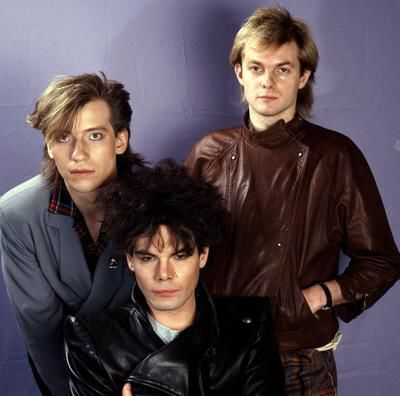
Balfe and Drummond then formed the short-lived Lori and the Chameleons.īig in Japan left a recorded legacy of seven songs: one on a single, four on their EP From Y to Z and Never Again, and two released on compilation albums. They also recorded a Peel Session on 12 February 1979, with a line-up of Casey, Broudie, Johnson and Budgie the session was broadcast on 6 March 1979. The unintentional consequence of the EP was the formation of the Zoo label, which went on to release early material by Echo & the Bunnymen and The Teardrop Explodes, amongst others. During their time, Big in Japan recorded four songs which were included in From Y to Z and Never Again EP, released afterwards to pay off debts. The band broke up after a last gig at Eric's on 26 August 1978. In the 1980s, Drummond became manager of Cope's band, The Teardrop Explodes. According to Cope's autobiography, "Of course, Bill Drummond was into the whole thing and told us we needed 14,000 signatures, then they'd split up. Displayed in local shop Probe Records the petition gathered numerous signatures, including those of the band themselves. In January 1978, Budgie (previously in The Spitfire Boys and later member of The Slits and Siouxsie and the Banshees) replaced Allen on drums, and in early June, Johnson was sacked and replaced with ex-Deaf School Steve Lindsey, who was replaced in July by Dave Balfe (previously in Dalek I Love You), the last member to join.Hatred of the band reached such a level that a petition calling on them to split up was launched by a jealous young Julian Cope. In October, Ambrose Reynolds joined to replace Ward who then left that December, but Reynolds himself quit shortly afterwards and was replaced by Holly Johnson. In August, the line-up grew, joining Jayne Casey (vocals), Ian Broudie (guitar) and Clive Langer (guitar), who quit in September, but not before the band recorded their first song released, "Big In Japan", which appeared in the 7" single compilation Brutality Religion and a dance beat, released the same year.

Their stage show was unique: lead singer Jayne Casey would perform with a lampshade over her shaved head, guitarist Bill Drummond played in a kilt and bassist Holly Johnson performed in a flamboyant manner which he would later take further in Frankie Goes to Hollywood.Īs an initial idea of Deaf School's Clive Langer, his friend Bill Drummond (guitar, vocals), Kevin Ward (bass, vocals) and Phil Allen (drums), formed the band in May 1977, playing only three gigs, the first of them at Bretton Hall College, in Yorkshire. They are better known for the later successes of their band members than for their own music.Ĭoming from the same Merseyside scene which would produce Echo & the Bunnymen, The Teardrop Explodes, OMD, and Dalek I Love You, Big In Japan started off playing gigs around Liverpool, such as Ruffwood School in Kirkby along with Wah! Heat, but most notably at Eric's Club. While “Taxi” hints at the kind of full-echo drumming that Budgie would later exploit as a Banshee, “Cindy and the Barbi Dolls” is a Martian surf samba with Drummond mumbling Rod McKuen-esque poetic love junk over ’50s guitar while a kitschy choir of double-speed munchkins oh-oh-ohs and yeah-yeahs its way behind the chords.Big in Japan were a punk band that emerged from Liverpool, England in the late 1970s. Singer Jayne Casey (who later led the dub-tinged pop band Pink Military and the ethereal Pink Industry) takes inspiration here from Japanese girl pop singers, adopting a choppy and chirpy boopsie-doll voice in “Suicide a Go Go,” a sing-song foray into an underworld of prostitution. The rest of its oeuvre was issued posthumously: two compilation cuts and a four-track 7-inch, From Y to Z and Never Again.

As the band Budgie drummed in before the Slits (or Siouxsie and the Banshees), as Ian Broudie’s group long before he was a hotshot producer or a Lightning Seed, as the first recorded sighting of wild Bill Drummond (future mastermind of the KLF) and as an early proving ground for bassist (!) Holly Johnson (later the vocalist in Frankie Goes to Hollywood), Liverpool’s Big in Japan deserves a lasting place in rock history merely for existing.īetween the group’s formation in the summer of ’77 and its dissolution fifteen months later, the entirety of its vinyl output was one half of a single (backed by a pseudonymous Yachts track credited to the Chuddy Nuddies).


 0 kommentar(er)
0 kommentar(er)
